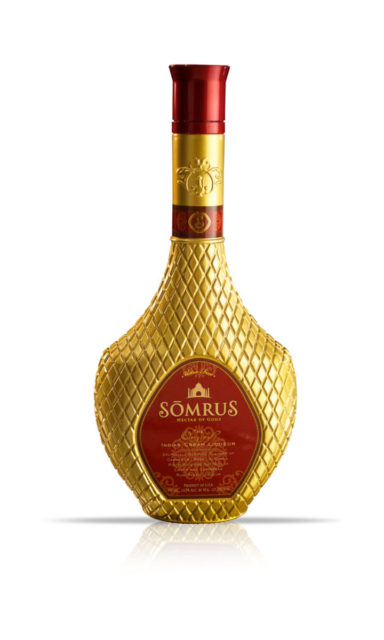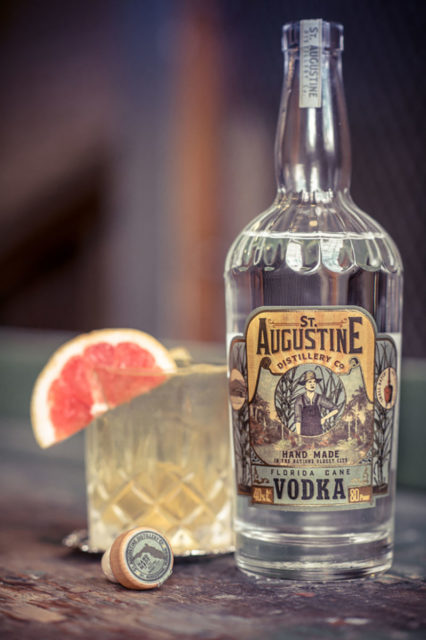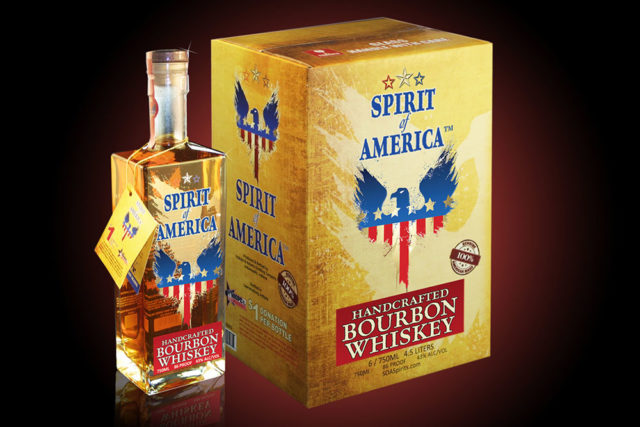A few years ago, a friend of mine – let’s call him Henry – received a healthy buyout from his day job, sold another business, and found himself with both time and money on his hands. He decided to follow a dream he’d always had: to develop and launch a signature spirit.
And although he went through the motions, located the right resources and prepared a premium product, his spirit has still not made it to market, and he’s not sure when or if it will. His trademark received a preliminary rejection because it was owned in an adjacent category that was “deemed too similar,” he says. Finally, the owner of that trademark issued a cease and desist, so he abandoned a chunk of his plan. As he says, “No liquid, no brand name equals no product.”
What could Henry have done differently? Although he hasn’t given up, he’s learned that there are plenty of key elements to know and follow through in order to bring a boutique booze to market – and have it succeed.
 Pankaj (PK) Garg, founder of the Indian-spiced cream liqueur SomruS, saw a gap in the market for a cream liqueur representing India’s bountiful spices, and this revelation led to the launch of a widely applauded product. Photo courtesy of SomruS.
Pankaj (PK) Garg, founder of the Indian-spiced cream liqueur SomruS, saw a gap in the market for a cream liqueur representing India’s bountiful spices, and this revelation led to the launch of a widely applauded product. Photo courtesy of SomruS.
1. Good Ideas Don’t Happen in a Vacuum
As Henry’s experience proves, it’s not enough to taste liquids and research trademarks only within your own category. The liquor business is more crossover than vertical, and many players tend to think ahead. Lenny Roberts, who launched the award-winning 100% nationally made, handcrafted Spirit of America (SOA) Bourbon in February 2015, notes that it was his father who originally held the trademark – since 1980. “We have been in the industry a long time building brands for others (Milagro, Tito’s, Patron, Ole Smoky, Daily’s RTD) and always talked about doing our own… but we never found the right time or partner or had the guts to launch our own. When he passed away 3 years ago (in December) I knew we needed complete the project and bring his vision to life. This is our tribute to him.”
When you do have something truly original, act on it. Pankaj (PK) Garg, founder of the Indian-spiced cream liqueur SomruS, which was rated one of the Top 50 Spirits of 2014 by Wine Enthusiast, was hit with a vision of his spirit while 35,000 feet in the air. Flying from India to the U.S., he wanted a nightcap after consuming what he describes as an “Eastern-inspired meal.” He says, “A light bulb went off – how come there is no cream liqueur representing a region known for spices, flavors and aromas which constitutes about 1/5 of the world’s population?” After extensive experimentation and global focus groups, SomruS, with ingredients including saffron, pistachios and almonds, was born.
2. Concession Is Not an Option
“Never compromise on product quality, taste and authenticity,” Garg says. “There are immense pressures to launch a version of the product and get the ‘cash flow’ going, but if you are not convinced yourself that this is the best product you can make, don’t do it.” It’s true, he says, that you can fix almost anything about a business in retrospect, with the exception of a mediocre product.
This is advice that Philip McDaniel, co-owner and CEO of St. Augustine Distillery in Florida, has also heeded. When he launched the idea for a four-product business (bourbon whiskey, Florida Cane Vodka, New World Gin and Discovery Series Rum), he thought long-term and invested $3 million in an historic ice plant complex, which he has since renovated and opened for tours. He also “three-way-partnered” with CFO Mike Diaz and Director of Production Brendan Wheatly, whom he calls “the single best consultant and best distiller in the business,” respectively.
“Our goal and focus is to be the premium craft brand in the southeast,” he says. He’s well on his way: In 2014, Florida Cane Vodka took a Double Gold Medal for Best Domestic Vodka from TheFiftyBest.com, and the 2015 San Francisco World Spirits Competition and the 2015 American Craft Spirits Association both awarded New World Gin Gold Medals.
 Philip McDaniel, co-owner and CEO of St. Augustine Distillery, fully committed to putting Florida on the map as a destination for superior spirits. Photo by Joseph Mills.
Philip McDaniel, co-owner and CEO of St. Augustine Distillery, fully committed to putting Florida on the map as a destination for superior spirits. Photo by Joseph Mills.
3. It’s Not a Part-Time Job
McDaniel didn’t even need a part-time job. After working as a sales and marketing consultant for Fortune 500 companies, he retired at 40 years old, then raised four kids as a stay-at-home dad and local philanthropist. But with all his kids in college, he wanted to do “something cool.” Also, as a Floridian since age 14, he “wanted to put Florida on the map with Colorado and Oregon and other great agricultural spots as a place where great spirits are being made.”
He’s certainly not short of ambition. After founding the Florida Craft Distillers Guild, he’s also hired lobbyists and succeeded in changing antiquated distribution laws so he could sell more bottles directly from his tasting room. “I wanted to be a leader in the system,” he admits.
Garg agrees that a startup is not a hobby. In fact, as it is for McDaniel, it has to be an all-consuming passion. “Creating a spirits brand is not a short-term play. There is a reason why distributors and retailers usually like to meet with the brand owners and product creators. You need to have that genuine ‘fire’ inside you and the belief that what you are offering is ‘super-differentiated.’” If you can’t offer that, he adds, no one else can do it for you.
4. Patience Is a Virtue
It takes years to produce a worthwhile spirit. St. Augustine Distillery actually began nearly five years ago by barreling bourbon, then released vodka, gin and rum in succession while its first liquor, which is now in its second aging, preparing for its 2016 debut. SomruS went from kitchen experiment in 2010 to market in 2014. SOA’s Roberts has an apt analogy: “Building brands is no different [than] building winning sports teams. I can promise you it’s not going to happen overnight. You have to do all the little things along the way like blocking and tackling, with and without help from the distributor. If you have done all those things and position the brand for success the rest is up to the story, the quality and a perceived value to the consumer.”
A little luck, according to my friend Henry (who ran out of it), doesn’t hurt, either. Or, as Roberts says, “After that, you need to be in the right category at the right time.”
 Lenny Roberts, who launched the award-winning 100% nationally made, handcrafted Spirit of America (SOA) Bourbon, had been in the spirits industry for a long time before launching a product of his own.
Lenny Roberts, who launched the award-winning 100% nationally made, handcrafted Spirit of America (SOA) Bourbon, had been in the spirits industry for a long time before launching a product of his own.
5. You’ll Always Need More of Something
In some ways, the startup spirits business is like any other – appearances matter, and so does delivery. Don’t promise more than you can offer, and be realistic about expectations.
But if your product is well received, as SOA, SomruS and St. Augustine’s trio of spirits all have been, then you can expect it to be game-changing. After that, you’ll always be in constant need of something: cash flow, product or just plain old time.
What you won’t be short of is customers. So how do you prepare for success, no matter how eventual it might be?
“Whatever you think the initial costs are going to be, triple them,” Roberts advises. “Make sure you have every aspect of the business covered with experienced people (sales, marketing, development, government regulations and financial). “
Most importantly, don’t be cocky. Roberts’ credentials go back to years of working with his father. But he still maintains that if you don’t know something, ask – even if you have to hire the opinion. For instance, he had never owned a distillery before, so there were some stumbling blocks for his team. “We were a little weak on the distillery end of things, but we brought in consultants to help guide us into making sure we were setting everything up properly. We asked lots of questions and have avoided making the big mistake, which dooms many companies,” he confides.
Garg echoes Roberts recommendations and adds to them, drawing on his management consulting background. “While we are addressing all the needs of the market, the distributor and retailers start thinking of you as a ‘big company’ as soon as your product is selling. Once you are out in the market, the expectation clock starts!”





